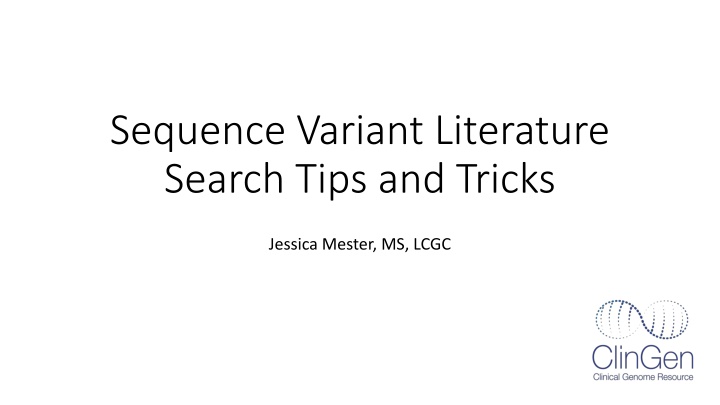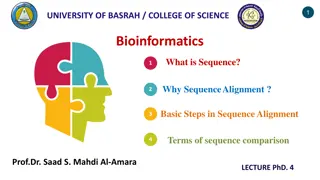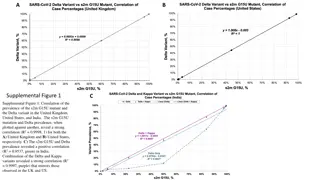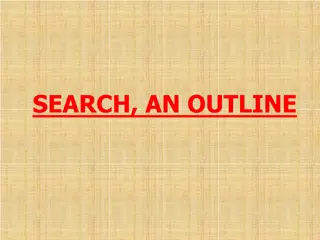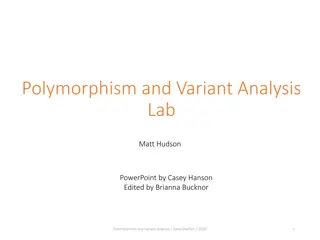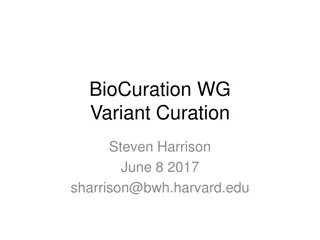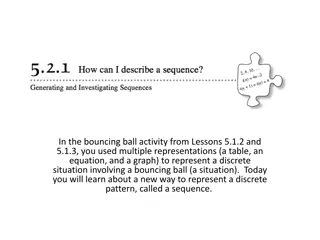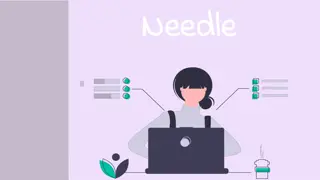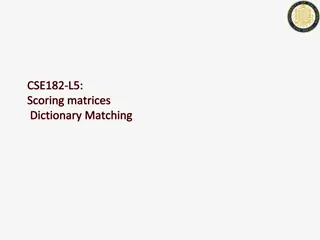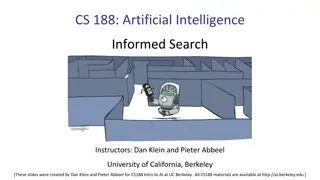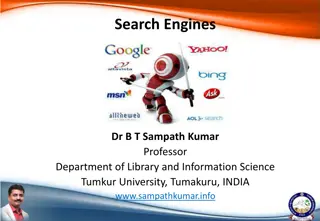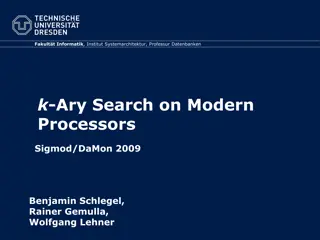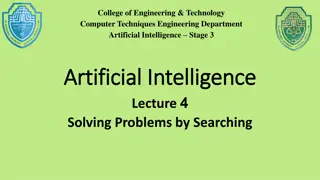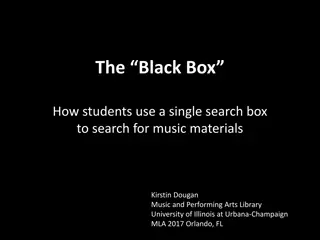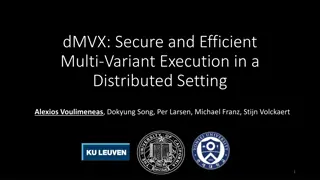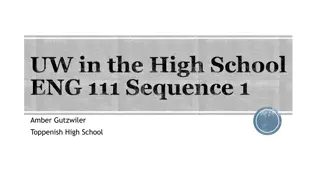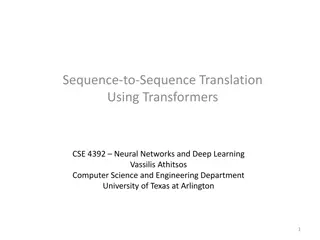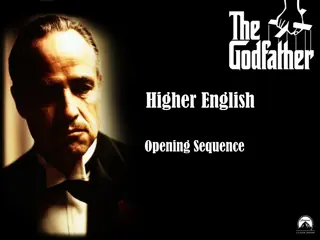Enhancing Literature Search for Sequence Variant Analysis
Enhance your literature search skills for sequence variant analysis with tips on effective use of variant nomenclature, sources for finding articles for ACMG criteria application, and tools like HGMD, ClinVar, MasterMind, Google, and Google Scholar. Discover the importance of functional studies, case reports, and molecular characterization in variant curation, and navigate common search obstacles to better understand the phenotypic spectrum.
Download Presentation

Please find below an Image/Link to download the presentation.
The content on the website is provided AS IS for your information and personal use only. It may not be sold, licensed, or shared on other websites without obtaining consent from the author.If you encounter any issues during the download, it is possible that the publisher has removed the file from their server.
You are allowed to download the files provided on this website for personal or commercial use, subject to the condition that they are used lawfully. All files are the property of their respective owners.
The content on the website is provided AS IS for your information and personal use only. It may not be sold, licensed, or shared on other websites without obtaining consent from the author.
E N D
Presentation Transcript
Sequence Variant Literature Search Tips and Tricks Jessica Mester, MS, LCGC
Disclosure I am an employee of GeneDx, Inc., a wholly-owned subsidiary of OPKO Health, Inc.
Overview Effective use of variant nomenclature in your lit search Where to look? Common lit search speed bumps and how to overcome them
Purpose of the literature search Find articles that allow for application of ACMG criteria during variant curation Functional studies Case reports (de novo, segregation, phenotype, co-occurrence) Molecular characterization Case-control data Evidence might be for or against pathogenicity Better understand phenotypic spectrum There is not one perfect literature search tool combination of sources might be necessary!
Starting your search HGMD (Human Gene Mutation Database, http://www.hgmd.cf.ac.uk/ac/index.php) Professional ($$$) version Public (free) version 3 years behind, available to academic/non-profit users Gene-specific databases Several listed at https://grenada.lumc.nl/LSDB_list/lsdbs (Locus Specific Database List), maintained by LOVD If you are focusing on one gene/disease, and it has a dedicated variant database, become best friends with that resource! ClinVar: some submitters provide citations, not all specific to variant Make sure to review the article yourself to ensure your specific variant is actually present!
Literature Search Tools MasterMind: https://mastermind.genomenon.com/ Others in development
Google/ Google/GoogleScholar GoogleScholar > PubMed PubMed: may hit if variant in abstract or title, but that s it! Google Helpful: locates variants in article text, supplemental tables Not as helpful: also finds non-genetics related links (ATM variants: finds you ATM machines at an address resembling your variant nomenclature) Detective work sometimes needed to figure out what article a table is from GoogleScholar Limited to published academic literature Better than regular google at finding variants in tables within a paper
Building Google Search Terms GENE AND ( V1 OR V2 OR V3 .) Take a generous approach to nomenclature authors might not use strict HGVS format! Include genomic position (GRCh37/hg19 still most used) Remember alternate or historic gene names (STK11 = LKB1, NBN = NBS1 ) Know if alternate transcripts or nomenclature used in addition to HGVS (standard) MUTYH: alternate transcripts (c.1187G>A/p.G396D = c.1145G>A/p.G382D) BRCA1/2: BIC nomenclature; nucleotide numbering starts at the beginning of the cDNA clone. Watch for push to the right
Finding Alternate Transcripts/Nomenclature Might be on a laboratory report In the VCI: appears in basic information of Evidence View; also on ClinVar variant page Excellent article on this subject: PMID 30096381, DiStefano M et al. J Mol Diagn. 2018 Nov;20(6):789-801. Curating Clinically Relevant Transcripts for the Interpretation of Sequence Variants. (Companion talk by Dr. DiStefano on ClinGen YouTube channel)
Push to the Right examples 29 25 15 21 Normal sequence: CTGCTGCTGAAAAA Variant deletion of one A : CTGCTGCTGAAAAA Could be named c.25delA OR c.29delA can t tell which A is really deleted. HGVS nomenclature would push to the right c.29delA Deletion 3 base pairs in repetitive sequence: CTGCTGCTGAAAAA No matter which three are deleted, surrounding sequence reads the same CTGCTGCTGAAAAA CTGCTGCTGAAAAA Consider alternate potential nomenclatures accordingly CTGCTGCTGAAAAA
Lit Search Term Examples * = wildcard operator; finds anything starting with what precedes it. Variant Type Lit search string Nonsense PTEN AND ( 1003C>T OR 1003 C>T OR Arg335Ter OR R335X OR Arg335STOP OR 89720852 ) Missense NF1 AND ( 277T>C OR 277 T>C OR Cys93Arg OR C93R OR 29486100 ) Frameshift MYBPC3 AND ( 1028delC OR 1028del OR Thr343MetfsX7 OR T343MfsX7 OR Thr343Metfs* OR T343Mfs* OR 47367820 ) Intronic FBN1 AND ( 1148-2A>C OR 1148-2 A>C OR IVS10-2A>C OR IVS10-2 A>C OR 48808561 ) In-frame indel MSH6 AND ("2157_2159delTAC" OR "2157delTAC" OR "2157del3" OR "Thr720del" OR "T720del OR 48027279 ) Different amino acid change at same residue Variant of interest: TP53 His179Asn TP53 AND ( His179* OR H179* ) would NOT include NOT His179Asn because one article might discuss both variants.
Google Search Results Don t worry, it s not that bad Several links: take you to websites that have extracted variants or info from ClinVar, gnomAD, other databases Can pull up articles where MYBPC3 mentioned, but variant with same nomenclature found in a different gene Over time: becomes easier to recognize potentially useful hits
Finding Source Publications for Google Hits Best case scenario: link takes you directly to article.
Database Hits ClinVar: typically top of search results LOVD entry
Detective Work Needed Clues: name of document indicates first or last author likely to be BH Funke, published in Genetics in Medicine during 2010, 200661 might be article number
Caution: double-dipping Same individual/family may be reported in several different articles Occasionally recognized and previous publications cited If not, look for Overlapping authors Patient recruitment/ascertainment in article methods Helpful clinical details (gender, ethnicity, family history ) If it s a rare variant, and several of these factors line up most likely to be the same individual
In Summary Finding helpful literature is a learning process, skills honed with time and experience Use available database resources to help increase efficiency Use comprehensive nomenclature terms in Google and GoogleScholar searches Always verify that your specific variant of interest is included in a publication
Thank You! ClinGen Education Working Group Karen Wain Danielle Azzaritti Sarah Barnett Lisa Kurtz Erin Riggs PTEN VCEP Biocurators Felicia Hernandez Melody Perpich Kaitlin Sesock Other ClinGen/Broad folks Jenny Goldstein Steven Harrison Becky Siegert
www.clinicalgenome.org clingen@clinicalgenome.org ClinGen is primarily funded through NHGRI through the following three grants: U41HG006834, U41HG009649, U41HG009650.
